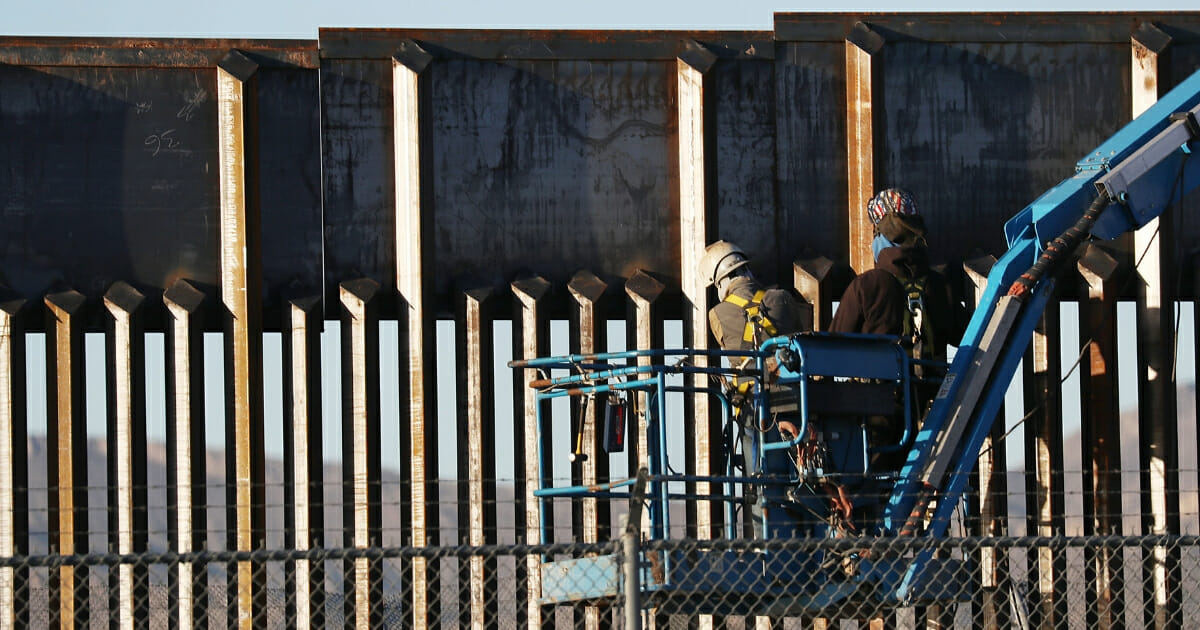
Pentagon Shifts $1.5 Billion To Pay for Border Wall Construction
The Pentagon is shifting $1.5 billion in funds originally targeted for support of the Afghan security forces and other projects to help pay for construction of nearly 80 miles of wall at the U.S.-Mexican border, officials said Friday.
Congress was notified of the move Friday. It follows the Pentagon’s decision in March to transfer $1 billion from Army personnel budget accounts to support wall construction.
Some lawmakers have been highly critical of the Pentagon shifting money not originally authorized for border security.
The combined total of $2.5 billion is in response to President Donald Trump’s declaration of a national emergency at the border, where Customs and Border Protection personnel are struggling to cope with increasing numbers of Central American families attempting to gain entry.
Trump vetoed Congress’ attempt to reverse his emergency declaration.
In all, the Pentagon is expected to shift about $6.1 billion to help build a border wall, including about $3.6 billion from military construction projects, some of which will be delayed.
The Pentagon has not yet announced which projects will be delayed in order to free up those funds.
Acting Defense Secretary Patrick Shanahan, who plans to visit the border on Saturday, said in an exchange with reporters Friday: “I won’t be reprogramming any more money for the border wall.”
He appeared to be referring to having reached the goal of channeling $2.5 billion — Friday’s announcement coupled with the March transfer of money — into a counter-drug program that will be used for the wall.
“We have very smart people here in the department, and we found ways to do this without having any impact on readiness,” he said, speaking before a meeting with Latvian Defense Minister Artis Pabriks.
Later, a Pentagon spokesman, Tom Crosson, said the $1.5 billion would be used to “undertake fence replacement” in and around Tucson, Arizona, and El Centro, Texas.
In a written statement announcing the shift of the $1.5 billion, Shanahan that the Pentagon is “fully engaged” in fixing the border crisis.
He said the $1.5 billion he authorized to be transferred toward wall construction was drawn from a variety of sources, “including cost savings, programmatic changes and revised requirements, and therefore will have minimal impact on force readiness.”
Some in Congress, however, are opposed to the use of Pentagon funds to build the wall.
“The Pentagon has now reprogrammed 12 times more money to the wall than for repairs for Tyndall AFB, destroyed by Hurricane Michael. We should put troops first!” Sen. Richard Durbin wrote on Twitter.
He was referring to storm damage at the Air Force base in Florida where almost every building was damaged.
In its written notification to Congress, the Pentagon said it was moving the $1.5 billion to support “higher priority items based on unforeseen military requirements than those for which” the funds were originally provided by Congress.
The move is “necessary in the national interest,” it added, according to a copy of the notice obtained by The Associated Press.
To piece together the $1.5 billion for additional wall construction, the Pentagon is shifting funds from several programs where it says it found savings.
The biggest chunk, $604 million, is from the Afghan Security Forces Fund, which keeps the Afghan army and other security forces afloat.
A standard review of the fund’s contract management found the $604 million in savings, according to two defense officials who spoke on condition of anonymity to discuss details that were not included in the Pentagon’s public announcement.
Removing the $604 million means the Afghan Security Forces Fund in the current Defense Department budget is reduced from the $4.9 billion approved by Congress to about $4.3 billion.
The Pentagon said the contract management review that found the $604 million in savings was conducted between September 2018 and March 2019 by the U.S. military command in Kabul.
An additional $251 million was shifted from a years-long project to destroy lethal chemical agents and chemical munitions in order to comply with the Chemical Weapons Convention.
$344 million is being taken from a group of Air Force programs, where the Pentagon identified contract savings, and $224 million is being used from savings related to a military retirement system, the officials said.
The Pentagon also is taking $78 million from the Coalition Support Fund, which is money used to reimburse coalition partners — mainly Pakistan — for logistical and military support for American military operations.
The Western Journal has reviewed this Associated Press story and may have altered it prior to publication to ensure that it meets our editorial standards.
Truth and Accuracy
We are committed to truth and accuracy in all of our journalism. Read our editorial standards.
Advertise with The Western Journal and reach millions of highly engaged readers, while supporting our work. Advertise Today.












